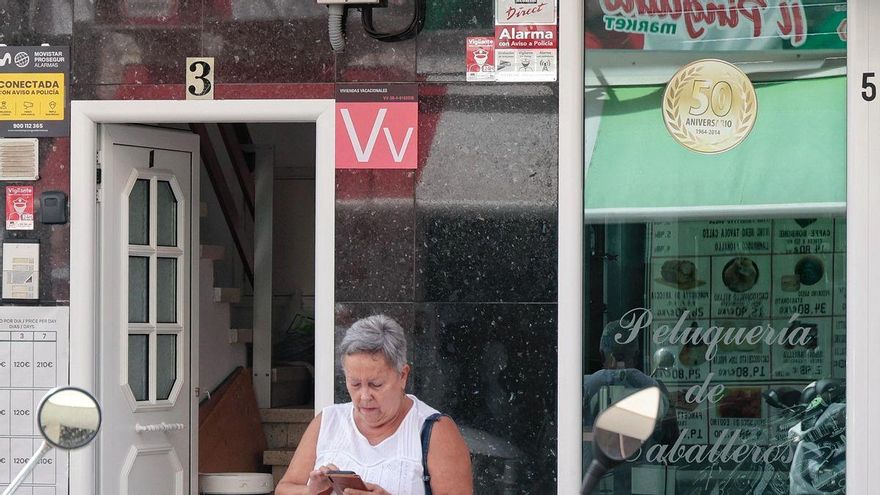From Urgent Proposal to Parliamentary Gridlock
In a final 2024 meeting held on December 26th, the Canary Islands Government approved the draft Law on the Sustainable Regulation of the Tourist Use of Housing and sent it to Parliament. The area’s minister, Jéssica de León, explicitly requested that it be processed “via the urgent procedure.” However, this desired speed for the new legislation clashed with parliamentary dynamics. Nine months later, the debate on over one hundred partial amendments submitted by parliamentary groups has not even begun. The text itself had already suffered seven successive delays since Minister De León officially delivered it to the President of the Parliament, Astrid Pérez, on February 6th.
A Race Against the Clock for a Final Vote
The committee tasked with debating these partial amendments met for the first time on Thursday. All groups except Vox—which, curiously, was the most belligerent against the rule, registered a failed amendment to the entirety in March, and twice requested extensions to submit reforms—presented changes. The committee has a clear mandate: the Plenary of the Parliament must definitively approve the text by mid-November, before debates begin on the 2026 Canary Islands Budget, which enters the chamber on October 31st.
Diverse Amendments: From Laxer Rules to Anti-Speculation Measures
The groups supporting the government (CC, PP, ASG, and AHI) presented 54 joint amendments. These aim to include exceptions that loosen restrictions for municipalities affected by demographic challenges, improve the criteria for defining the tourist use of housing, and include an urban flexibility clause. This clause would allow planning instruments to shorten the timeframes for designating a property for vacation rental.
In contrast, the opposition’s amendments focus on “curbing speculation” and protecting families against large operators. The Socialist Group (PSOE) has presented 25 amendments, including a proposal to limit the number of vacation homes per owner to a maximum of three properties per titleholder. This measure seeks to “combat concentration and give more opportunities to families,” incentivize traditional renting, reduce pressure on the residential market, and revalue the tourist offer through specialization.
NC-Bc, led by Luis Campos, submitted 34 amendments. These highlight the right to reside habitually in homes on tourist land, establish a specific regime for first and second homes on mixed-use land, and clearly differentiate between large and small holders. Their proposals also include an objective limitation of vacation rentals in high-pressure zones and a prohibition on transforming entire blocks under single ownership into vacation homes.
A Bumpy Road Through Parliament
The path to approving the Tourism Ministry’s proposed law has been far from smooth. Beyond the successive extensions for submitting amendments, the PSOE maneuvered to delay the debate on the amendments to the entirety for five weeks. Using regulatory technicalities, they pushed this debate to March 14th, which subsequently had to be convened in a special plenary session.
The law’s passage also triggered a massive email campaign from the Platform for Those Affected by the Tourism Law (PALT) against the legislative project—some deputies received up to 508 emails in just three hours. Furthermore, in April, the president of the Canarian Vacation Rental Association (Ascav), Doris Borrego, submitted 6,067 signatures, 685 written statements from business associations, and 990 citizen comments on the regional parliament’s website. They demanded “an urgent one-year moratorium” to negotiate a new legislative text or modify the current one “in its entirety, via amendments.”
The Core Objective: Addressing the Housing Emergency
The ultimate goal of this “slowed-down” urgent text is to partially alleviate the housing emergency and the lack of homes at a dignified price. As Minister De León stated, it aims to “return housing to its social function, call on territorial planners to exercise their competencies, and legislate on the specific area of tourist use.”
As originally conceived, and pending potential amendments, the law would halt new authorizations for vacation rentals for five years. This moratorium is designed to give the 88 Canary Islands municipalities time to “define where and how many fit” in their jurisdictions. In a region with 1.1 million homes potentially suitable for tourist conversion, the law reserves 90% of land for residential use (80% on the ‘green islands’ of La Palma, La Gomera, and El Hierro). In areas declared as high-pressure zones, growth will be set at zero, a significant measure for preserving local community living amidst booming tourism.

